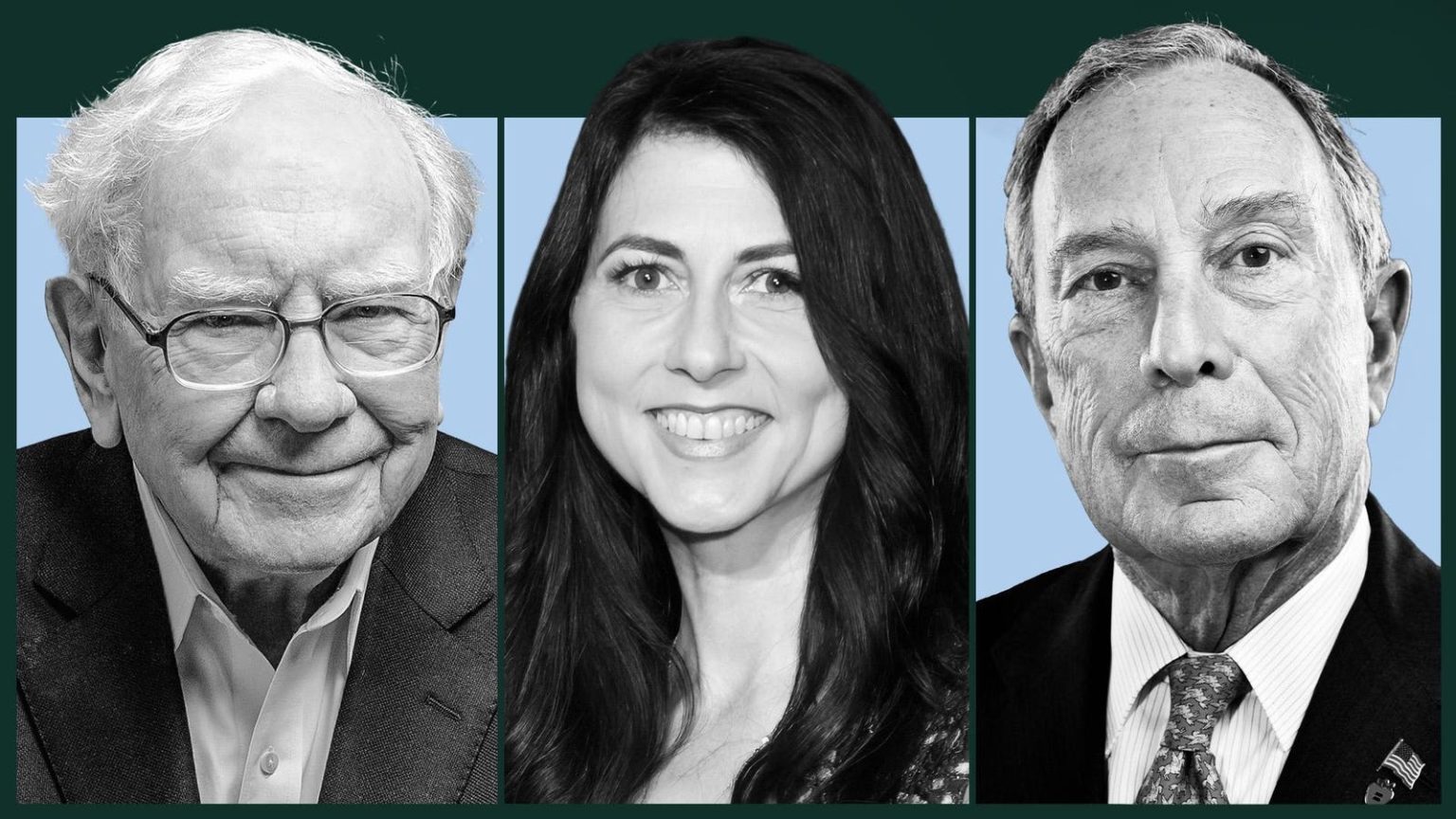America’s Top Philanthropists See Wealth Surge, But Giving Lags Behind
The fortunes of America’s wealthiest philanthropists have reached unprecedented heights, fueled by robust stock market performance. However, their charitable giving, while substantial, hasn’t kept pace with this wealth explosion. Forbes estimates that the combined lifetime giving of the top 25 philanthropists rose to $241 billion in 2024, a 14% increase from the previous year. However, their collective net worth soared by 18.5% to $1.6 trillion, revealing a widening gap between wealth accumulation and charitable contributions. This translates to a lifetime giving rate of 15% of their total wealth, the lowest percentage since Forbes began tracking this data in 2021.
Warren Buffett Leads in Lifetime Giving, but Shifts Future Philanthropic Focus
For the fifth consecutive year, Warren Buffett reigns supreme in total lifetime giving, having donated $62 billion, representing 30% of his fortune. His 2024 contributions totaled $5.3 billion, primarily in Berkshire Hathaway stock to the Gates Foundation and foundations run by his three children. However, Buffett surprised the philanthropic world by announcing that his Berkshire Hathaway shares, currently valued at approximately $145 billion, will not be bequeathed to the Gates Foundation upon his death. Instead, he plans to entrust these shares to a foundation managed by his children. Forbes’ calculation of Buffett family giving includes grants disbursed by the children’s foundations, which supported causes ranging from global food security to local Nebraska initiatives.
George Soros Sets the Bar High for Giving as a Percentage of Wealth, MacKenzie Scott Emerges as a Philanthropic Force
While Buffett leads in total giving, George Soros stands out for his generosity relative to his wealth, having donated 76% of his net worth to his Open Society Foundations. His philanthropy has historically focused on promoting democracy, particularly in Central and Eastern Europe, and more recently has supported children’s education in Afghanistan. MacKenzie Scott, the former wife of Jeff Bezos, has rapidly become a significant philanthropic force, giving away $19.25 billion in unrestricted grants to over 2,450 organizations in just six years. Her rapid pace of giving is second only to Buffett and the Gateses, who benefit from the extensive infrastructure of the Gates Foundation. Scott’s commitment to giving "until the safe is empty" underscores her dedication to impactful philanthropy.
Jeff Bezos and Elon Musk Lag in Giving Relative to Their Immense Fortunes, Newcomer Reed Hastings Joins the Ranks
While Jeff Bezos, the world’s second-richest person, has made notable contributions to climate change initiatives, housing, and education, his lifetime giving represents a mere 1.6% of his vast fortune. Elon Musk, the world’s richest individual, doesn’t even qualify for the Forbes ranking, with lifetime giving estimated at $620 million, far below the minimum threshold of $1.9 billion. Meanwhile, Netflix co-founder Reed Hastings joins the ranks of top philanthropists this year, having significantly increased his giving through a donor-advised fund, though the details of his recent philanthropy remain undisclosed.
Mike Bloomberg Steps Up to Support the Paris Agreement, Philanthropic Landscape Evolves with Passing of Major Donors
Mike Bloomberg’s commitment to combating climate change is exemplified by his pledge to help fill the funding gap created by the U.S. withdrawal from the Paris Agreement. While a relatively small sum for Bloomberg, who gave away over $3 billion in 2024, this commitment demonstrates the crucial role of philanthropy in addressing global challenges. The philanthropic landscape has also witnessed the passing of notable figures, including Jim Simons and Bernard Marcus, whose wives continue their legacies of giving.
Forbes Methodology Emphasizes Actual Disbursements to Charitable Causes, Transparency Remains a Key Factor
Forbes’ methodology for calculating lifetime giving focuses on actual disbursements to charitable organizations, excluding funds held in foundations or donor-advised funds that have yet to be distributed. This approach prioritizes demonstrable impact over pledged or earmarked funds. Transparency is also a critical factor, with Forbes seeking details on payouts from donor-advised funds, which are often opaque. This rigorous methodology ensures an accurate and meaningful assessment of philanthropic contributions.


